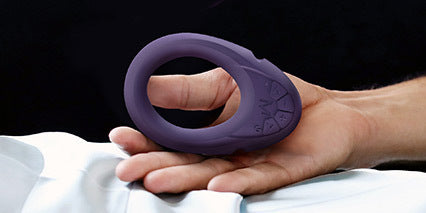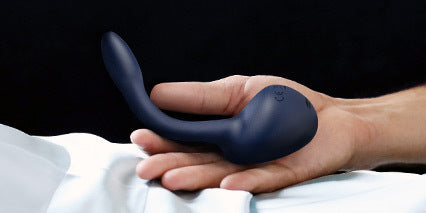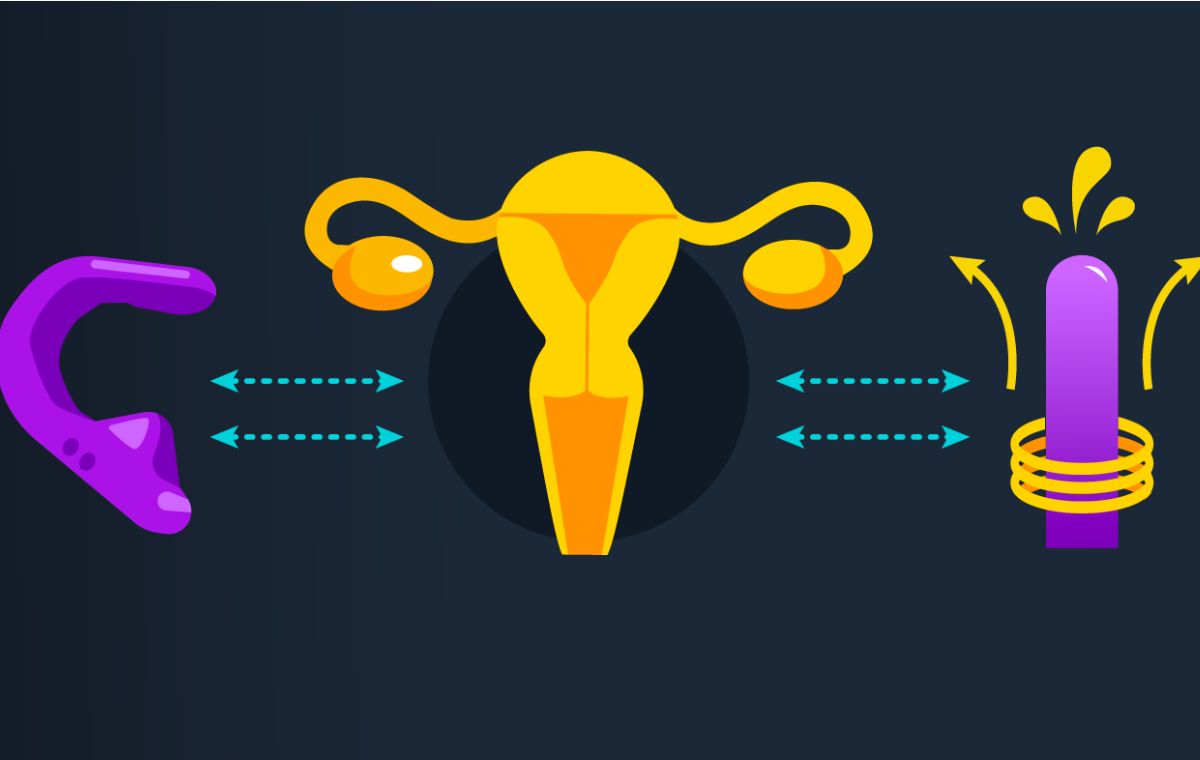Cancer sucks. Chemotherapy can seem to suck as much as the disease, and it can definitely have an effect on your sex life. However, it does not have to mean that you have to be celibate until you get better. Here are some of the things you need to know:
Chemotherapy Can, Yes, Kill Your Sex Drive
While you are on chemotherapy your interest in sex may drop dramatically. For some men, testosterone levels drop during treatment, resulting in a lowered interest in sex and difficulty getting and keeping an erection. However, these effects generally go away after the treatment. If you can't get an erection, your doctor or nurse may be able to give advice.
For women, a lower sex drive is also not uncommon. Again, this is temporary and will go away after treatment. It may be because testosterone is important for the ladies too, but can also be impacted by your overall energy levels.
The overall loss of energy associated with chemotherapy may also make you less interested in sex. However, it may make you more interested in cuddling. Keep things low-key and remember: If you fall asleep in your partner's arms, it's not your fault and this too can be a form of intimacy.
Sometimes you may find that your sex drive comes back between treatments. You can learn your pattern and plan accordingly.
Safe Sex is Much More Important
Because chemotherapy suppresses your immune system, it's much more important to practice safe sex. Use condoms or dental dams for all oral, vaginal, or anal sex, even if you are with a regular partner you trust. Use dental dams for mouth on vagina or mouth on anus. Don't use spermicides on dental dams. You can buy dental dams from a drug store or if you already have latex or polyurethane condoms, you can cut off the tip and then cut one side to make a dental dam.
Also, it's very important to use a condom within 48 hours after your treatment, as there is some evidence chemotherapy drugs may get into your bodily secretions and affect your partner. It is not advisable to get pregnant or get your partner pregnant while on chemotherapy, due to the risk of harm to the baby. This might sound worrying, but don't let it get in your way. Intimacy can help boost your mood during this trying time.
Chemotherapy Can Make You Feel Unattractive
Losing your hair, losing or gaining weight, effects on skin, etc: All of these can make you feel horribly unsexy, especially for women. If you are in a relationship with somebody on chemotherapy, take extra steps to make sure that they still feel as if you care for and want them. One thing not enough partners do is go with their loved one for wig fittings. Helping your partner pick out a wig is hugely supportive and can help them feel that you like their new look. Discuss whether you want to wear a wig during sex or not.
Therapy can help you deal with issues with your looks. For some people, getting a wig the same as their hair can make them feel more normal. Others may want to experiment with different colors and styles. Your partner may also benefit from therapy. Try the mirror exercise to improve your self-esteem.
As cancer can affect relationships, couples therapy is a good idea and can help both you and your partner work through the self-esteem issues you may have. But remember that you can still wear something sexy, you can still go out on dates as your energy allows, and you have the strength to get through this. Put on the sexy underwear or learn to hide side effects with makeup, such as brow pencils.
Fertility Concerns Can Affect your Sex Life
Chemotherapy can have a permanent effect on fertility for both men and women, although it is more common in women. Drops in sperm count during and for a period after treatment are normal, and some men never return to normal. Chemotherapy can cause damage to eggs. Some people find worrying about their fertility makes them less interested in sex, especially men, even if they aren't currently trying to have children.
It's worth starting a conversation with your doctor about fertility preservation. For men, this generally involves freezing a sample which can be used to inseminate your partner or a future partner. For women, options include freezing eggs or embryos, or freezing part of the ovary. Different drugs have different risks, so talk to your doctor about the best treatment. If you have already had as many kids as you want, you may not care. (However, women should not assume they are infertile after chemotherapy and should continue to use contraception).
Now, for some people, ending up infertile can actually improve their sex life because it's one less thing to worry about.
Some Women Experience Premature Menopause
It's not uncommon for women who have had chemotherapy to experience premature menopause. Menstruation normally stops during treatment. In most cases, it starts up again, but even women who had cancer treatment young and returned to normal may find menopause arrives before the age of 40. If you have both ovaries removed, you will go straight into menopause, with all it entails. This might include hot flashes, weight gain, vaginal dryness, and your sex drive changing in either direction.
If menopause symptoms bother you, talk to your doctor about treatment options. For women who have had their ovaries removed, hormone replacement therapy may be a long-term option to keep things normal until you reach the typical age for menopause. Vaginal dryness is common with chemotherapy in general, and the best solution is to use lube. Make sure you get lube designed for vaginal, not anal sex, as they have slightly different compositions and can't be substituted for each other.
Some Men Experience Erectile Dysfunction
Not being able to get it up is embarrassing, but it's also fairly common during treatment. It can be caused by overall fatigue, lack of sexual confidence, low testosterone levels, or medications you might be taking for pain or depression. In most cases, it will go away after your treatment is over. In the meantime, options might include taking Viagra or other medication to help you get an erection. You could also use alternatives such as a penis pump, or you could have drugs injected directly into your penis. If you have long-term erectile dysfunction, which is more common if you had surgery on your testicles or prostate, your doctor may recommend a penis implant to sustain an erection.
Remember that there's no shame. It's embarrassing, but it's not a failure on your part. Another thing which can happen is dry ejaculation, where you ejaculate but nothing comes out. In some cases, this can actually lead to a stronger orgasm later.
There Are Sexy Things Other than Intercourse

Yes, yes there are. A lot of heterosexual couples feel that penis in vagina is pretty much the way to have sex. News flash: It doesn't have to be. If you are unable to sustain an erection, or if your vagina is dry and penetration has become uncomfortable or painful, then consider other options. Even just kissing and caressing is good if that's all you are up to. Sometimes you may be so tired all you can do is cuddle on the couch while watching a romantic comedy and that is absolutely okay.
Experiment with mutual masturbation, oral sex, and other ways of obtaining gratification. Talk to each other about sex and respect each other's needs and boundaries. Don't be afraid to use toys to fill the gap either: There's nothing wrong with getting out a dildo, a vibrator, or a pocket pussy during sex and using them to get around what isn't working right now. Don't be afraid, either, to book a session with a sex therapist who can give you more ideas and advice for getting creative in bed. Even if you do go for intercourse, try different positions, which may end up being more comfortable for you.
You Can Still Date
If you aren't in a relationship right now, you might feel as if you have to put dating on hold until after your treatment. This isn't necessarily the case. You need to decide whether and when to tell a potential partner about your cancer, but it is often better to reveal it earlier.
Remember that if you find somebody willing to date you while you're in the middle of chemotherapy, unless they have a fetish, you have probably found somebody who, having seen you at your worst, will greatly appreciate you at your best.
Keep A Sense of Humor
Sex can be awkward and messy at the best of times, and you should never take it too seriously. When you're trying to work around issues caused by chemotherapy and other cancer treatments, it's even more important to have a good sense of humor about what might happen in the bedroom.
Remember, you should not give up. Your sex life will be affected by your or your partner's treatments, but it is definitely not over, and keeping a sense of humor and perspective will help you keep your life and relationships together. You never know, you might learn something new to keep you moving forward after your treatment.
To learn about other products that can help your sex life, contact MysteryVibe today.































